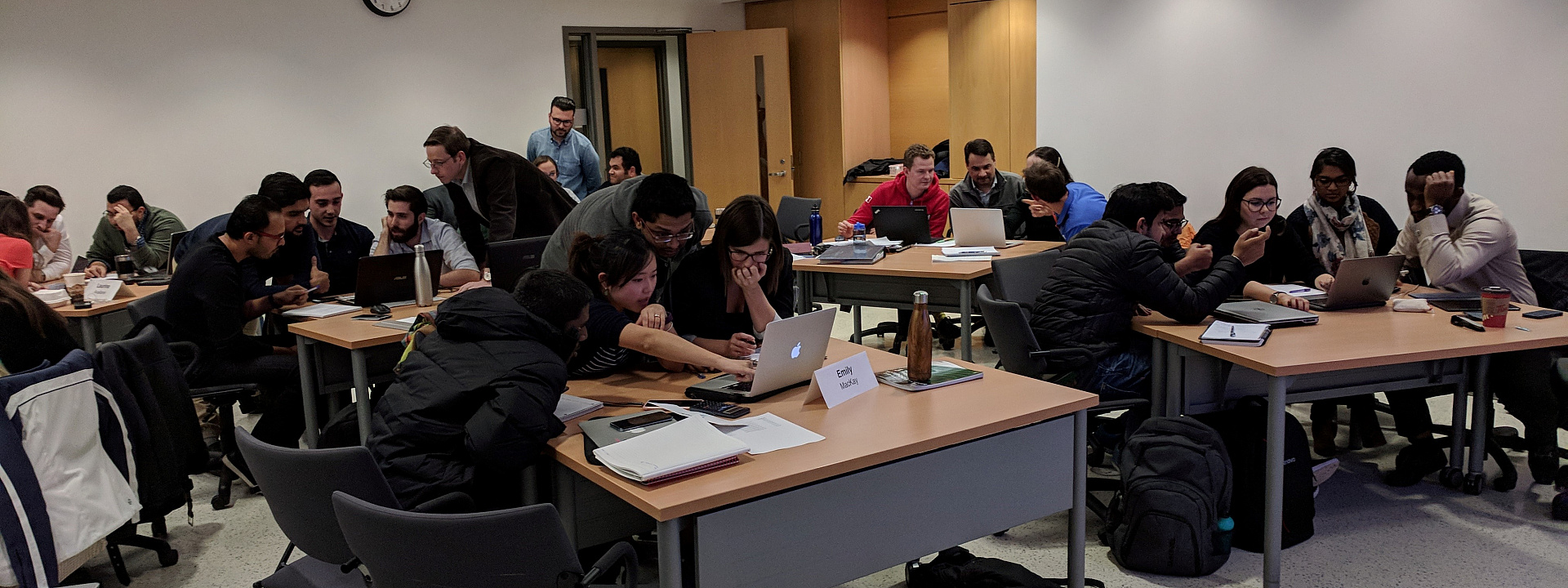As part of the Leadership, Strategy and Sustainability course, nearly 150 Telfer School of Management students in courses ADM 4717, ADM 4317 and MBA 5211 participated in an interactive online simulation called Fishbanks.
It is a multiplayer web-based simulation during which each team of students plays the role of a company that owns and manages a fishing fleet. The teams compete to maximize their net worth during the simulation. They begin by defining their strategy for the next 10 years. They must plan their annual operations, mostly their fishing activities, by allocating their resources each year according to their initial strategy. They decide whether to buy, sell or build their ships, where to fish, and they negotiate with one another. Students focus on strategic thinking and decision making. The program automatically calculates all the annual financial results and indicators for each team. It simulates a real business system where marine natural resources are the main source of income for the companies. However, the goal of the simulation is not limited to merely raising students' awareness of the importance of strategic planning and the short- and long-term consequences of decisions. It is especially meant to expose them to the issues surrounding the dynamics of ecosystems and irrational exploitation of resources.
"We are preparing the decision-makers of tomorrow who will be managing businesses directly or indirectly involved in exploiting living ecosystems," said Dorra Jlouli, professor of course ADM 4717. "The interdependence of the system's different parameters is the main challenge of system dynamics, such as those in the management of natural resources. This simulation is an excellent tool that simplifies for students this complex aspect of the tragedy of the commons," she added.
The debriefing following the simulation is as important, if not even more important than the simulation itself, as students realize and understand the consequences of their decisions. "The players all tend to exceed the maximum size of the fleet for rational and sustainable exploitation of resources, despite having learned about renewal dynamics of fish stocks before the simulation. This is typical behaviour in different contexts in which this simulation is used, regardless of the level of knowledge of the subject matter," said Dorra Jlouli.
"When designing the course, we deliberately sought a teaching method that allows students to experience a certain cognitive dissonance between the type of leader they think they are and the real impact of their business decisions on the planet's future," said Daina Mazutis, professor of courses ADM 4317 and MBA 5211. "The Fishbanks simulation provides a learning experience that allows for profound personal reflection on the connections among leadership, strategy and sustainability," she added.



Fishbanks is a simulation created by the MIT Sloan School of Management. Renowned international universities use it mainly for management and sustainable development programs. It is also used by international institutions, chiefly GIZ, for strategic planning workshops pertaining to sustainable development and to explain the Tragedy of the Commons phenomenon.



